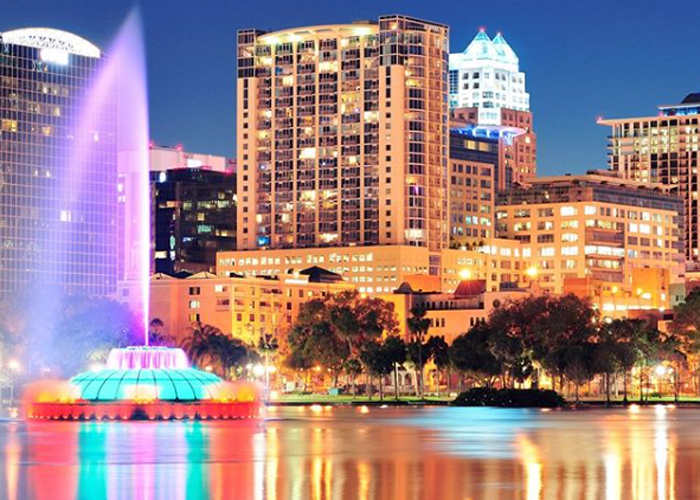Well-known for its magnificent swans, prolific golf courses, and for being the theme park mecca of the world—Orlando, Florida is a highly coveted travel destination for tourists looking to indulge in the city’s top attractions.
Aside from the infamous I-4 eyesore and its propensity for stifling humidity (the kind that leaves your clothes perpetually plastered to your skin)—you’d be hard-pressed to find anything disagreeable about The City Beautiful.

With so many people flocking to Orlando (a whopping 75 million in 2018 alone!), the environmental impacts of the city’s tourism industry are hard to ignore. Thankfully, Orlando is actively working to promote environmental stewardship through projects aimed at combating climate change and revitalizing natural habitats.
In 2007, Orlando Mayor Buddy Dyer launched the Green Works Orlando initiative to help transform the city “into one of the most environmentally-friendly, economically and socially vibrant communities in the nation.” The City Beautiful is certainly accomplishing just that! Here are eight ways Orlando is paving the way for a sustainable future and positioning itself to be one of the greenest cities in the world.
1. Sustainable Transportation
Before Lyft scooters were a thing, Orlando’s Bike Share Program has been supplying residents with bicycle rentals to help reduce the amount of pollutant-emitting cars on the road. Earlier this year, the city also received a nearly $2 million grant from the Federal Transit Administration to launch a fully electric fleet of public transit buses, *plus* the city is working to establish an interconnected sidewalk network to help encourage active, healthy living and reduced dependence on cars.
2. Free Composters
Orlando is working to divert food waste from landfills by supplying residents with free backyard composters! Orlando residents can request a free composter online, which they can use to turn kitchen and yard waste into nutrient-rich soil, perfect for fertilizing garden plants.
3. Food Waste Program
Along with providing curbside recycling collection (surprisingly, not something all cities offer) *and* free composters, Orlando enables residents to recycle non-compostable food waste for free! The food waste program is incredibly simple: residents collect their food scraps and then drop them off at participating farmer’s market locations, which will help divert food waste from local landfills and reduce greenhouse gas emissions. What’s even more remarkable is the fact the city sends the food scraps to an anaerobic digester where they are converted into electricity!
4. Single-Use Plastic Ban
In June 2019, Orlando commissioners unanimously passed a sweeping ban on single-use plastics (such as plastic straws, utensils, and bags) and polystyrene products at city parks and venues—making it the state’s first city to enact such a ban.

5. Community Gardens
From production to packaging to transportation—food production is incredibly resource-intensive. To help quell this issue, Orlando encourages local food systems by funding community food gardens throughout the city and promoting its Fleet Farming initiative—a non-profit urban agriculture program created by environmental group IDEAS for Us—which helps establish edible gardens or micro farms in homeowners’ yards. In addition to reducing food-related greenhouse gas emissions, these gardens help to minimize food deserts by giving residents access to healthy, wholesome foods.
6. Energy Efficient Streetlights
If you’ve made the switch to LED lights, you’ll be happy to know Orlando has also converted its residential streetlights and the vast majority of its traffic lights to the energy-efficient bulbs!
7. Tree Giveaways
With a goal of increasing tree canopy to 40 percent by 2040, Orlando is on a mission to plant a whopping 250,000 new trees! The city’s ‘One Person, One Tree’ program supplies residents living within city limits with a free tree to plant either in their private yard or off the street!
8. Zero-Waste by 2040
With a commitment to strengthening its sustainability efforts and reducing the city’s environmental impact, another one of Orlando’s long-term goals is to become zero-waste by 2040—something the city plans to accomplish with its innovative recycling programs.
Related: Ancient Fountains, Azure Seas, V-Mozzarella—Rome & Amalfi Coast Are An Eco Travel Dream
This Cool London Workplace For Sustainable Science Is Reason To Stay Hopeful
Get more like this—Subscribe to our daily inspirational newsletter for exclusive content!
__
Photo: Visit Orlando via Instagram




